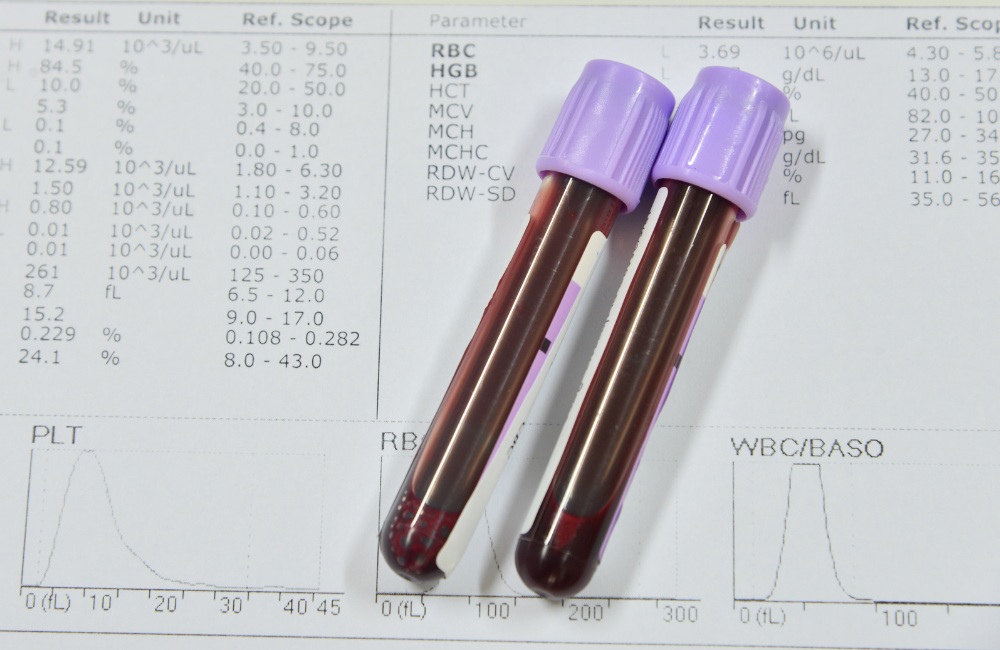The Significance and Importance of a Complete Blood Count Test
Have you ever wondered what’s happening inside your body on a microscopic level? It’s a fascinating world of cells, platelets, and plasma, all working tirelessly to keep you healthy. But how do we peek into this hidden realm? That’s where the Complete Blood Count (CBC) test comes in.
In this article, we’ll take a journey deep into the significance and importance of performing a Complete Blood Count test. Imagine it as opening a treasure chest of knowledge about your health, with each blood cell telling a story. But before we embark on this adventure, let’s outline what you can expect to discover in the following sections.
Table of Contents
ToggleWhat is a Complete Blood Count (CBC) Test?
The Complete Blood Count (CBC) test is like a snapshot of your bloodstream, capturing essential information about the quantity and quality of your blood components. It’s a routine blood test performed in clinics and hospitals worldwide, and it’s often ordered by healthcare providers for various reasons.
Understanding the Components of Blood
To comprehend the significance of a CBC test, we must first understand the components that make up our blood, much like understanding the ingredients of a complex recipe.
Red Blood Cells: Your Oxygen Couriers
Think of red blood cells as tiny delivery trucks transporting oxygen throughout your body. These biconcave discs are packed with hemoglobin, a protein that binds to oxygen and ensures it reaches every cell. Low red blood cell count can lead to fatigue and anemia, while high counts can indicate certain medical conditions.
White Blood Cells: Guardians of Immunity
White blood cells are the body’s defense force. They fight off infections, viruses, and foreign invaders. A CBC measures the different types of white blood cells, such as neutrophils, lymphocytes, and monocytes. Abnormal counts can signal infections or immune system disorders.
Platelets: Clotting Heroes
Imagine platelets as the first responders to a wound. They rush to the site of injury and clump together to form a clot, preventing excessive bleeding. A CBC checks platelet count, which is crucial for diagnosing bleeding disorders or monitoring treatment.
Hemoglobin and Hematocrit: The Oxygen Metrics
Hemoglobin and hematocrit levels reflect the blood’s oxygen-carrying capacity. Low levels may indicate anemia, while high levels could point to dehydration or lung diseases. Understanding these metrics helps diagnose and manage various health conditions.
Why is a CBC Test Performed?
Now that we’ve dissected the components of blood, let’s explore why healthcare providers recommend a CBC test.
Screening for Various Health Conditions
CBC tests are used as routine health checkups to screen for a range of conditions, even when you’re feeling perfectly fine. They can detect early signs of anemia, infection, and certain cancers, allowing for timely intervention.
Monitoring Chronic Illnesses
For individuals with chronic illnesses like diabetes, CBC tests are invaluable. They help track the impact of diseases on blood counts and guide treatment adjustments.
How is a CBC Test Administered?
The process of getting a CBC test is relatively straightforward, and it doesn’t require extensive preparation.
The Simple Blood Draw
A CBC test typically involves a simple blood draw from a vein in your arm. It’s quick, and the discomfort is minimal. In some cases, a finger prick may be used for immediate results.
Lab Analysis
Once your blood is drawn, it’s sent to a laboratory for analysis. Highly trained technicians use specialized equipment to count and categorize your blood cells accurately.
Interpreting CBC Results
Understanding the results of your CBC test is crucial. This section will help you decipher those numbers and ranges effectively.
Reference Ranges
CBC results are compared to reference ranges that vary based on factors like age and sex. It’s essential to note that a result slightly outside the reference range may not necessarily indicate a problem.
Anomalies and Their Significance
Abnormalities in your CBC results can signify underlying health issues. We’ll dive into specific red flags in the next section.
Red Flags in CBC Results
When your CBC results deviate from the norm, it can raise concerns. Let’s explore some common red flags and what they might indicate.
Anemia: Low Red Blood Cells
If your red blood cell count is lower than the reference range, it may indicate anemia. Anemia can result from various causes, including nutritional deficiencies and chronic diseases.
Infections: High White Blood Cells
Elevated white blood cell counts often indicate an infection, as your body deploys more troops to combat invaders. This could be a bacterial, viral, or even a parasitic infection.
Clotting Disorders: Platelet Abnormalities
If your platelet count is too low, it can lead to bleeding disorders, while excessively high counts might indicate clotting disorders, potentially increasing the risk of stroke or heart attack.
The Role of CBC in Disease Diagnosis
CBC tests play a pivotal role in diagnosing a range of health conditions, sometimes even before symptoms manifest.
Cancer Detection
In some cases, CBC results can raise suspicion of cancer. For instance, an abnormal increase in white blood cells might prompt further tests for leukemia or lymphoma.
Inflammatory Conditions
Conditions like rheumatoid arthritis or lupus often involve abnormal CBC results, with increased white blood cell counts and other markers of inflammation.
Tracking Treatment Progress
CBC tests are not only diagnostic tools but also important for tracking the progress of various treatments.
Cancer Therapies
For cancer patients, CBC tests are frequent companions throughout treatment. They help monitor the effects of chemotherapy and radiation, ensuring adjustments are made when necessary.
Chronic Disease Management
Individuals with chronic diseases, such as HIV or autoimmune disorders, rely on CBC tests to assess disease progression and treatment efficacy.
Routine Screening and Preventive Care
CBC tests aren’t reserved for the sick; they’re also essential for preventive care.
Importance for All Ages
From newborns to the elderly, CBC tests are used at different stages of life to ensure overall health and early detection of potential problems.
Prenatal Care
Pregnant individuals may have CBC tests to ensure both their health and the baby’s well-being. Anemia and other blood-related issues can affect pregnancy outcomes.
Potential Limitations of CBC
While CBC tests are invaluable, they do have limitations.
Incomplete Information
CBC tests provide a snapshot of your blood health but may not reveal the whole picture. Further testing may be needed for a comprehensive diagnosis.
Need for Further Testing
Abnormal CBC results often warrant additional tests to pinpoint the exact cause of the issue. Your healthcare provider will guide you through this process.
Preparing for a CBC Test
What can you expect before, during, and after a CBC test? Let’s walk through it.
Fasting or Non-Fasting?
Most CBC tests don’t require fasting, which means you can eat and drink as usual before the test. However, follow any specific instructions given by your healthcare provider.
Medications and Supplements
Inform your healthcare provider about any medications or supplements you’re taking. Some drugs can affect CBC results.
What to Expect During the Test
The idea of a needle may be daunting, but the CBC test is relatively painless.
The Blood Draw Experience
A trained phlebotomist will insert a needle into a vein, usually in your arm. You might feel a slight pinch, but the procedure is swift.
Minimal Discomfort
Don’t let fear of discomfort deter you from this essential test. The mild discomfort is fleeting, and the benefits far outweigh any momentary unease.
After the CBC Test
Once your blood is drawn, what’s next?
Immediate Normal Activities
You can resume your daily activities immediately after the test. There’s no need for bed rest or restrictions.
Waiting for Results
Patience is key. CBC results may take a day or two to process. Your healthcare provider will discuss the findings with you.
The Emotional Aspect of CBC
Getting a CBC test can evoke various emotions.
Anxiety and Anticipation
It’s natural to feel anxious before any medical test. However, understanding its importance can alleviate some of that anxiety.
Reassurance and Peace of Mind
Remember, a CBC test is a tool for early detection and monitoring. Knowing your blood’s story can provide reassurance and peace of mind.
Conclusion
In the world of medicine, the Complete Blood Count test is a storyteller. It reveals vital clues about your health, from the bustling highways of red blood cells to the vigilant guardianship of white blood cells. By understanding its significance and importance, you empower yourself to take charge of your well-being.
Whether it’s routine screening, monitoring a chronic condition, or the pursuit of a healthier life, the CBC test is your compass in the labyrinth of health. Don’t shy away from it; embrace it as your ally in the quest for a long and healthy life.
FAQ’s
The CBC test involves a simple blood draw, which may cause minimal discomfort but is generally not painful.
While a CBC test cannot diagnose cancer on its own, abnormal CBC results can raise suspicion, leading to further diagnostic tests for cancer.
Most CBC tests do not require fasting, but follow any specific instructions provided by your healthcare provider.
CBC test results typically take a day or two to process. Your healthcare provider will discuss the findings with you.
CBC results can vary slightly due to factors like hydration and activity levels, but significant fluctuations are usually a cause for concern and warrant further investigation.
Note: Remember, it’s always a good idea to consult a healthcare professional or registered dietitian before making significant changes to your diet, especially if you have any underlying health conditions or specific dietary requirements.
Book an Appointment
Recent Articles
-
 Zerodol-SP Tablet: Power of Pain Relief and Inflammation Control30 Jun 2023
Zerodol-SP Tablet: Power of Pain Relief and Inflammation Control30 Jun 2023 -
 Glycerin for Face: A Game-Changer in Skincare?01 Sep 2023
Glycerin for Face: A Game-Changer in Skincare?01 Sep 2023 -
 The Incredible Benefits of Eating Walnuts: Boosting Your Health One Nut at a Time29 Jun 2023
The Incredible Benefits of Eating Walnuts: Boosting Your Health One Nut at a Time29 Jun 2023 -
 The Marvel of First-Time Sex: Unveiling the Potential for Pregnancy05 Jul 2023
The Marvel of First-Time Sex: Unveiling the Potential for Pregnancy05 Jul 2023 -
 Full Body Checkup: A Complete Test List for Optimal Health02 Nov 2023
Full Body Checkup: A Complete Test List for Optimal Health02 Nov 2023

